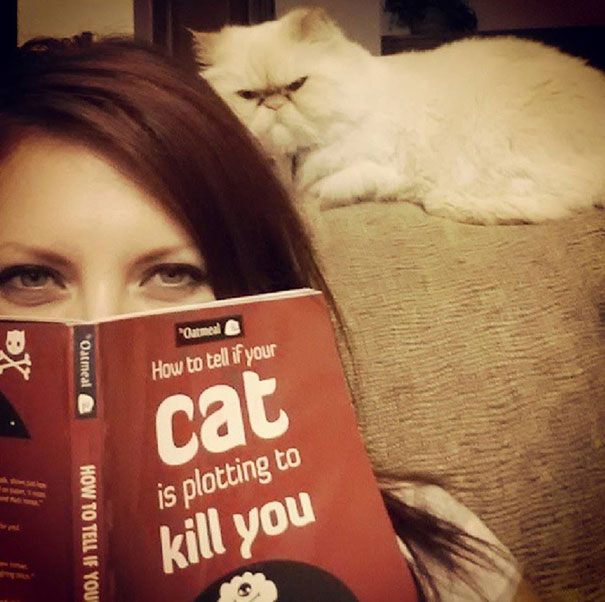
A new book warns you: keep a constant eye on Fluffy.
Cats are colonizers: this is what they do. They have colonized the internet just as they have colonized so many other habitats, always with the help of humans. This is the lesson of Cat Wars: The Devastating Consequences of a Cuddly Killer, a new book by conservation scientist Peter P. Marra and travel writer Chris Santella. From remote islands in the Pacific to the marshes of Galveston Bay, Cat Wars traces the various ways in which felines have infiltrated new landscapes, inevitably sowing death and devastation wherever they go.
Perhaps the most famous case of genocide-by-cat is that of the remote Stephens Island in New Zealand. Before the end of the 19th century, it was home to a unique species: the Stephens Island wren. One of only a few species of flightless songbirds, the wren ran low to the ground, looking more like a mouse than a bird. After a lighthouse was built on the island in 1894, a small human settlement was established; and with humans, invariably, come pets. At some point a pregnant cat, brought over from the mainland, escaped and roamed wild. The island’s wrens, unused to facing such a skillful predator, were no match for the feral cats that spread throughout the island. Within a year, the Stephens Island wren was extinct. It would take another 30 years to eradicate the feral cats.
This is not an isolated incident. Cats have contributed to species decline and habitat reduction in dozens of other cases. Because they’re so cute and beloved, we have little conception of — and little incentive to find out — how much damage cats are doing to our environment. When researcher Scott Loss tallied up the number of animals killed by North American housecats in a single year, the results were absolutely staggering: between 6.3 and 22.3 billion mammals, between 1.3 and 4 billion birds, between 95 and 299 million amphibians, and between 258 and 822 million reptiles.
No comments:
Post a Comment
We enjoy hearing from visitors! Please leave your questions, thoughts, wish lists, or whatever else is on your mind.